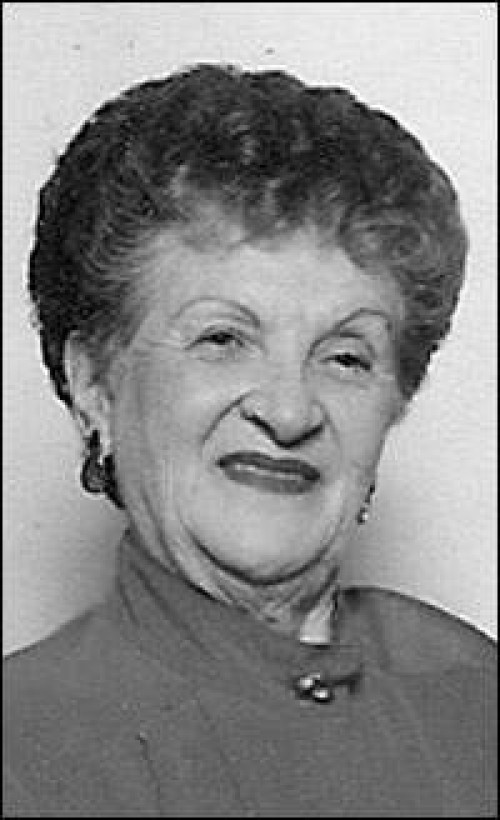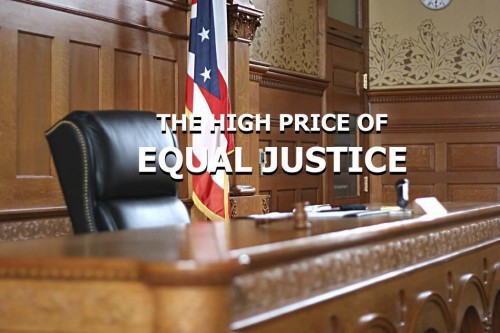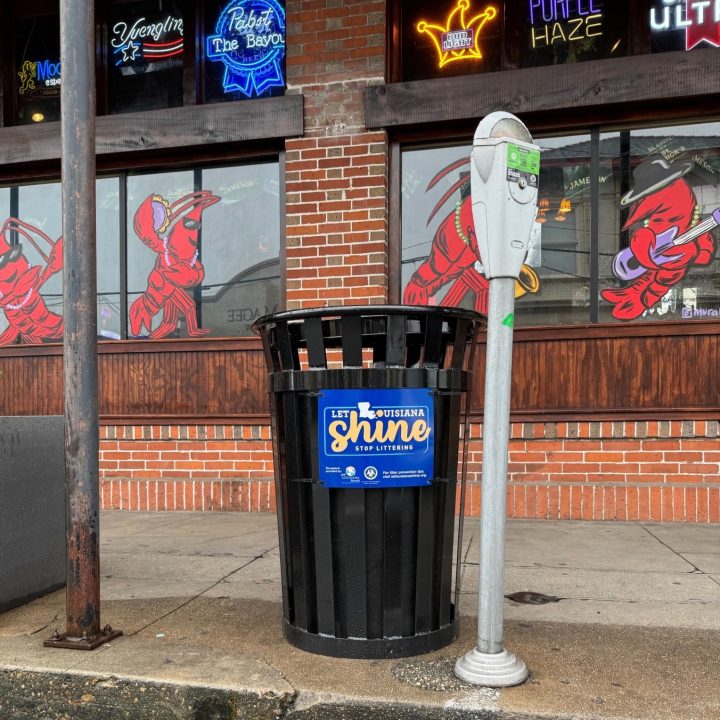Joseph Matis
August 6, 2007
Felma Arceneaux
August 8, 2007The Terrebonne Parish Indigent Defense System has stood as a role model for other judicial districts around the state.
This is perhaps reflected in the composition of the newly-reformed, renamed and empowered Louisiana Indigent Defense Board.
The board’s chair and vice-chair are Jerri G. Smitko and Anthony “Tony” Champagne.
Both are lawyers based in Houma.
Champagne also serves as the Chief Public Defender in Terrebonne, which occupies the 32nd Judicial District.
The statewide reforms to the indigent defense system brought on by the passage of House Bill 436 by Rep. Daniel R. Martiny, R-Metarie, will begin taking real effect on Aug. 15, when the LIDB takes over the system, replacing the local indigent defense boards.
The reform’s impact on Terrebonne’s system seems to be as uncertain as it is potentially positive.
Past and present
Lawyers, lawmakers, judges and others have been working to improve the state’s abysmal indigent defense system for many years.
But in a system graded as failing by the Louisiana Justice Coalition in eight of the ten categories set by the American Bar Association, Terrebonne’s system stood out amongst the other districts.
“Terrebonne Parish has an excellent board,” said the LIDB chair, Smitko.
Attorney William G. Yates serves on the indigent defense board in Terrebonne. He worked as an attorney in the parish’s indigent defense system from 1999 to 2005.
He said the parish system worked so well, other judicial districts would sometimes send people to scout it.
He spoke about his experiences working as an attorney in the parish’s indigent defense system. He praised Champagne’s oversight of the parish system, something the LIDB hopes to bring to all the districts in the state.
“Tony’s really good about watching what you do,” said Yates. “He would come in and observe us in the courtroom from time to time. He would observe me, even though I’m a senior attorney.”
And to address complaints by clients in prison, Yates said letters coming from the jail would go directly to Champagne.
Champagne would review the letters and speak to the relevant attorney about the complaint.
“If he [Champagne] felt the complaints were valid, he’d counsel with the attorneys,” said Yates. “I thought that oversight was pretty good.”
Like nearly all the attorneys in the indigent defense system in Terrebonne, Yates was paid contractually for his cases. He did felony, OCS and misdemeanor cases.
The ABA and the LJC generally look down on contracting caseloads to indigent defense attorneys. The contracts can create inescapable, overwhelming caseloads for attorneys.
But, according to Champagne, the parish has been fortunate. Caseloads haven’t been much of an issue in its system.
“I was really pretty lucky. I never had more than about 80 or 90 cases pending at a time, which is quite a few as far as I’m concerned.” said Yates. “I think an ideal situation is to have between 40 to 60 cases. You can handle that fairly well without a whole lot of trouble. You get over 60 cases and it begins to strain you.”
The National Advisory Commission on Criminal Justice Standards created the standard for caseload limits. The commission set the limits at 150 felonies, 200 juvenile cases or 400 misdemeanor cases per year.
Most attorneys cover a mixture of these types of cases, however, making the limits a little ambiguous.
“I work with that on a regular basis and obtained funding from the state board to alleviate caseload problems,” said Champagne. “We’ve had a couple of grants this year to hire a few extra attorneys to take care of caseload problems.”
Champagne said the attorneys working in the indigent defense system in Terrebonne are under the limits set by the ABA.
“The system here is probably working as good or better than the other judicial districts,” said Yates. “I think you can give credit almost directly to Tony Champagne. He does what he’s supposed to do.”
Champagne said Terrebonne currently has about $1 million a year for its indigent defense system.
He gave a very rough estimate that 60 to 70 percent of that funding comes from fines and court costs.
The state board gives the parish system about $200,000 from the district assistance fund, compliance assistance fund and various grants to meet particular goals.
The parish system also receives a certain percentage of its funding from other sources like bond licensing fees, bond forfeitures and application fees.
Champagne said the local budget has been increasing year to year, allowing the parish system to keep up with the increasing case demand.
And he only has one full-time attorney right now, besides himself. The number of attorneys he contracts with varies from about 20 to 23.
He said the way attorneys in the parish’s system are paid depends upon the situation and the cases they have to handle.
For example, some attorneys, who handle certain cases in a particular division of court, are paid the same amount per month.
Some attorneys handle conflict cases and are paid hourly with a cap on each case. There are exceptions to this with some types of cases, like child custody cases, which may go on until a child turns 18.
But despite this, the parish’s system has made a lot of progress. At one point in the late ’90s, its office functioned without a copying machine, computers or an investigator, according to Yates.
Slowdowns?
The LJC reported the average person arrested for a crime in Calcasieu Parish would sit in jail for 186 days before ever learning with what crime they had been charged.
In Terrebonne, indigent defenders are seen by attorneys within 72 hours of arrest.
Champagne said he monitors on a regular basis the amount of time indigent defenders sit in jail awaiting trial.
He said Terrebonne doesn’t have much of a problem at all with indigent defenders sitting in jail for excessive amounts of time awaiting trial, compared to other parishes.
Champagne said he used to have his own case-tracking program and if anyone had been in jail for more than 180 days, he would pull the attorney in and determine the reason for the delay.
He added sometimes there was a legitimate reason for the delay.
And now, he relies on the state’s new Web-based program to track the cases ongoing in the parish.
Of the 636 inmates in Terrebonne Parish jail in July, 381 were indigent defenders.
A delay in getting an indigent defendant to trial isn’t necessarily caused by the indigent defense system.
The LIDB chair, Smitko, pointed out the fact the amount of time an indigent defender may spend awaiting trial generally has more to do with the district attorney’s office and the district judges than the indigent defense system.
“They [district attorneys] decide on the priority list,” said Smitko. “All felony cases are assigned to a certain division of the court. Each division of court, generally, unless they agree to a special week, only has a felony week every other month. So, roughly six times a year, each judge here sits as a felony week. The assistant district attorney in that division then looks at all of his or her cases then puts out what is called the priority list. And it lists the cases they intend to try in that week.”
So, if a public defender has a client on the list, they might go to trial or they might not.
“An IDB lawyer can be ready for six months,” said Smitko. “But, it’s not going to come up until the ADA puts it on the trial list and agrees to try the case.”
She said the prosecution is entirely in control of that system.
“You can make some speedy trial claims, but there are times when that works and times when it doesn’t,” said Smitko.
Yates had a slightly different point of view.
“You can’t put that all on the district attorney. We only have maybe 80 to 85 percent of the cases. They got all of them,” said Yates. “And you can’t try them all at once.”
Yates said most people don’t stay in jail long, but said there are some that sit in jail for years. He said in these situations there is generally something wrong with the case or something has happened.
But he said if he had a client in prison who wanted to file for a speedy trial, he would do it.
Big cases, bigger problems
Accused serial-killer Ronald Dominique is an indigent defender in a capital trial.
Cases don’t come much bigger than this.
Champagne spoke about big cases and the strain they put on indigent defense systems in general.
“It [a big case] takes a tremendous amount of time and takes substantial resources as well,” said Champagne.
Champagne could say little more, given the fact he is defending Dominique and a gag order has been issued in the case.
Yates described what its like to take on a big case as an indigent defense attorney.
“A lot of things go through your mind. Am I going to be able to help this individual? Am I going to be able to keep him from being executed? Am I going to be able to do my best? How much time am I going to be able to spend on this? All that goes through your mind,” said Yates. “It’s a heavy load.”
Looking ahead
The passage of Martini’s reform bill will bring more money into Terrebonne’s indigent defense system and provide new oversight.
“Based on what they have to work with, it’s just going to get better now that they’ve got some more money,” said Yates. “I think they already do an incredible job for their clients, but it’s going to get even better.”
How the system evolves from where it is now to where it can be in the future is largely up to the attorneys working in the system.
“I think the move is to continue to pare down caseloads and hire attorneys who are interested in doing good work and can devote most, if not all their time, to doing public defender work,” said Champagne.
As mentioned in part one of this series on the state’s indigent defense system reform, Champagne said he had concerns about being able to hire new attorneys.
One of the reasons for this was the fatigue associated with tediously inputting case information into the new Web-based program.
While attorneys working out of Champagne’s office can rely on secretaries to do this for them, some of the contract attorneys don’t have such a luxury.
“With the added burden of continuously inputting information into the Web-based program, I’m seeing some frustration by some of the attorneys. Especially at city court, because we have such a high volume of cases that take a small amount of time,” said Champagne.
He said one of the complaints coming from the attorneys in city court is the time they spend putting information into the program, which takes away from the time could spend with their clients.
“I have one attorney down there who’s decided he’s throwing in the towel. He just doesn’t feel like he has the time to input the information,” said Champagne.
Yates said the program can potentially save attorneys times if they have secretaries to input the information for them.
And the inputted information is then available to all the other indigent defense boards in the state.
The local indigent defense boards can then use this information to ask for more funding from the state board.
“It shows how much work you’re actually doing,” said Yates.
Besides the new program, hiring attorneys to work in the indigent defense system in general is a tricky task, according to Yates.
“It’s a beast that takes a certain kind of care and feeding,” said Yates. “A lot of attorneys don’t want to fool with that. So right from the beginning, you’re limited to the kind of attorneys that are willing to do that kind of work, because not all of them are willing to do it.”
Yates said getting full-time attorneys for the indigent defense system is hard.
“If you get a full-time attorney and you get a good one, he’s going to move on as soon as he gets a chance,” said Yates. “The D.A.’s office raids the IDB office frequently.”
Editor’s Note: This is the second of a three-part series on the indigent defender system.















